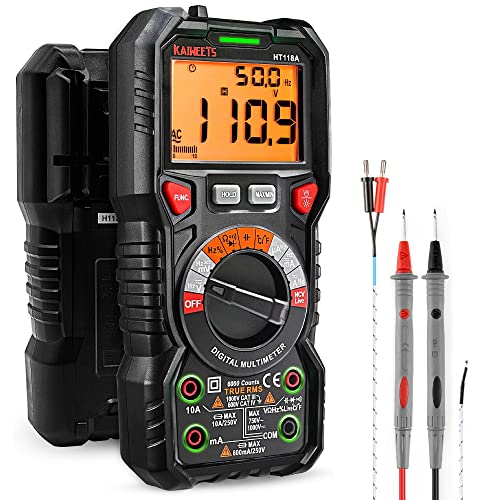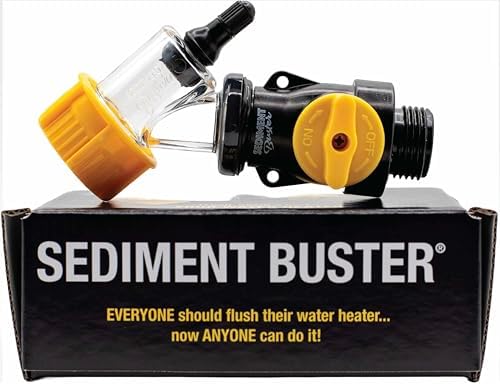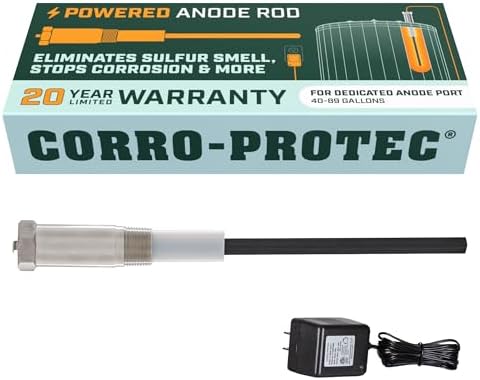There’s nothing more frustrating than stepping into the shower only to be met with freezing water because your water heater decided to shut down again. If your water heater keeps turning off, you’re not alone this is one of the most common problems homeowners face with both gas and electric water heaters. A properly working water heater should provide consistent hot water, but when it starts shutting down unexpectedly, it’s a sign that something isn’t quite right.
The issue could be as simple as a dirty pilot light or as serious as a failing heating element. Sometimes it’s due to normal wear and tear, while other times it’s a warning that your system needs urgent repairs. By understanding the possible causes, you can save time, money, and a lot of cold showers. Let’s break down why your water heater might keep turning off and what you can do about it.

Common Reasons Your Water Heater Keeps Shutting Off
Pilot light issues
If you have a gas water heater, the pilot light is a small flame that burns the burner. When it goes out, your water heater won’t produce hot water. Drafts, dirt buildup, or a faulty thermocouple can cause the pilot light to keep going out. Sometimes it’s a simple fix, like relighting the pilot, but if it keeps happening, there’s likely an underlying issue.
Faulty thermocouple
Thermocouple is a safety tool that finds out whether the pilot light is lit. If it senses no flame, it shuts off the gas supply to prevent leaks. A damaged or dirty thermocouple might incorrectly signal that the flame is out, cutting off gas flow and turning off your water heater. Replacing a thermocouple is inexpensive, but it’s a common culprit when water heaters keep shutting off. That’s why choosing the right model matters — here’s one worth considering-
- The sp20075 AS39845 Pilot and Igniter Assembly Solve These Problem:The water heater light takes more than 10 minutes to …
- High Quality Material:Upgraded SP20075 pilot and igniter assembly use high-quality raw materials which has strictly test…
- Compatible with rheem water heater pilot assembly: RHG PRO50-40F, 42V40F, 22V30F and 3WA62, 3WA63, 3WA64, 3WA59, 3WA61 n…
Dirty or clogged burner
Over time, dust, dirt and debris can stop the burner, prevent it from working efficiently. A closed burner struggles to ignite properly and can cause your heater unexpectedly close. Burner cleaning can often restore performance, but in severe cases, replacement may be necessary.
Malfunctioning thermostat
Your thermostat controls the temperature of your water heater. If it malfunctions, it may overheat or shut off the unit prematurely. A broken thermostat can be frustrating since it leads to inconsistent hot water and frequent shutdowns. Replacing it can often restore normal operation.
Quickly check tank surface and outlet temperatures to spot thermostat or element failure without disassembly. Fast, non-contact checks-Checkout this product-
- 𝐕𝐞𝐫𝐬𝐚𝐭𝐢𝐥𝐞 𝐓𝐨𝐨𝐥𝐬: Infrared technology allows you to measure various objects at home and outdoors; Use it for 𝒎𝒆𝒂𝒕, 𝑫𝑰𝒀 𝒄𝒂…
- 𝐁𝐞𝐭𝐭𝐞𝐫 𝐀𝐜𝐜𝐮𝐫𝐚𝐜𝐲: The Lasergrip’s 12:1 𝒅𝒊𝒔𝒕𝒂𝒏𝒄𝒆-𝒕𝒐-𝒔𝒑𝒐𝒕 𝒓𝒂𝒕𝒊𝒐 enables you to accurately measure temperatures from a comfo…
- 𝐄𝐚𝐬𝐞 𝐨𝐟 𝐮𝐬𝐞: Scan the surface of your object, hold down the trigger of the thermometer gun, get temp anywhere within the…
Gas Water Heater Problems That Cause Shut-Offs
Gas supply interruptions
A weak or interrupted gas supply can cause your water heater to turn off. This may happen due to issues with your gas line, leaks, or low pressure. Without a steady gas flow, the pilot light and burner cannot stay lit. If you suspect gas supply problems, it’s crucial to have a professional inspect it immediately for safety reasons.
Faulty gas control valve
The gas control valve regulates the amount of gas that flows into your water heater. If it is a malfunction, your heater may be closed randomly or fails to completely ignite. This component is more expensive than thermocouple, but it is important for safe operation.
Blocked or dirty air intake
To function a gas water heater, it requires proper airflow for combustion. Blocked or dirty air intake can cause flame, which can shut down the heater. Pet hair, dust and lint are common criminals. Regular cleaning of the intake vent ensures stable performance.
READ MORE: How to Use a Bathtub Water Heater
Test continuity of heating elements, thermostats, and electrical supply — essential for diagnosing electric heater shutoffs. Must-have for DIY diagnosis–Check this out
- WIDE APPLICATIONS: KAIWEETS HT118A Multimeter measures up to 1000V DC voltage and 750V AC voltage, 10A AC/DC current and…
- EASY OPERATION: Switch the dial to the function you need, and the LED lights on the jacks will shine accordingly. To plu…
- MULTI-FUNCTION: Non-contact voltage testing and Live function with sound and light alarm. Flashlight on the back ensures…
Electric Water Heater Problems That Cause Shut-Offs
Tripped circuit breaker
If your electric water heater is turned off, the initial step is to check the circuit breaker. Overloaded circuits, bad wiring, or low frequent trips can be the reason. Resetting the breaker could resolve it temporarily, but if it happens, it is an electrical issue that needs to be repaired by an expert.
Heating element failure
Electric water heaters rely on heating elements inside the tank. When one or both elements fail, the heater struggles to maintain temperature and may shut down. Replacing heating elements is a common repair that can breathe new life into your unit.
Loose or damaged wiring
Faulty wiring can cause your heater to turn off unexpectedly or fail to power on at all. Loose connections, frayed wires, or burned-out electrical components are dangerous and should always be inspected by a licensed electrician.
Safety Mechanisms That Shut Down Your Water Heater
The role of the thermal cutoff switch
Modern water heaters are designed with built-in safety features, and one of the most important is the thermal cutoff switch. This device monitors the temperature of your water heater and automatically shuts it down if it detects overheating. Think of it as a “guardian angel” for your appliance; it prevents dangerous situations like fires or explosions by cutting power when things get too hot.
If your water heater keeps turning off, it might be because the thermal cutoff switch is doing its job. However, if it keeps tripping repeatedly, that usually indicates an underlying issue such as a damaged thermostat, sediment buildup, or restricted airflow. While you can reset the switch once or twice, constant resets are not a long-term solution. At that point, you’ll need to investigate the real cause behind the overheating.
Pressure relief valve function
Another major security facility is temperature and pressure relief valve (T&P valve). Its role is simple but important: to release additional pressure inside the tank. Without it, the tank can literally burst under extreme conditions. If your water heater is closing due to pressure issues, the T&P valve can do its work to protect your home from a possible dangerous accident.
Sometimes, though, the valve itself may be faulty or clogged, which leads to false trips. If you notice water leaking from the valve or frequent shutdowns, it’s best to have a plumber test or replace it. Safety-first product-check this out-
- CASH ACME RELIEF VALVE: Cash Acme NCLX Combination Temperature and Pressure Relief Valves are designed for the protectio…
- DESIGN: The NCLX Series relief valves feature a cast bronze body, brass, and stainless steel internal parts, silicone se…
- COMPACT: Pressure-reducing and regulating valves
Overheating prevention system
In addition to the thermal cutoff and T&P valve, many modern heaters include electronic sensors that monitor temperature levels. When water gets too hot, these systems automatically turn the unit off to prevent scalding and overheating damage. Frequent shutdowns due to overheating could be a sign of thermostat failure, mineral buildup inside the tank, or inadequate ventilation.
Signs Your Water Heater Needs Professional Attention
Repeated shut-offs despite resets
If you fill the pilot continuously or reset the breaker to get warm water, it is a clear indication that something is not correct. The water heater is designed to run continuously without daily intervention. When the reset becomes a part of your routine, it is time to call a technician. Ignoring this issue can lead to more valuable repair under the line or even completely system failure
Strange noises or odors
A water heater that makes the noise of popping, bang, or noise is sending signs of crisis. These sounds often come from sediment buildup inside the tank, which trap the steam bubbles and produce noise. The abnormal smell, like the smell of a rotten egg, may indicate the development of gas leaks or bacteria inside the tank. Either way, these symptoms should not be ignored, as they can be dangerous or harmful to your home plumbing system.
Inconsistent hot water supply
If your showers keep flipping from hot to cold without warning, your water heater is stumbling to do its job. Inconsistent water temperature is often linked to faulty thermostats, failing heating elements, or gas supply issues. While small fluctuations are normal, constant ups and downs are a sign of a deeper problem that requires attention.
READ MORE: How to Make a Hot Water Heater Hotter
DIY Fixes Before Calling a Professional
Checking the pilot light
If you own a gas water heater, the first thing to check when it shuts off is the pilot light. Sometimes it simply goes out due to drafts or minor disturbances. Relighting the pilot is usually a straightforward process, but always follow the instructions on your water heater’s label. If the flame won’t stay lit, the issue could be a faulty thermocouple or gas valve.
Resetting the thermostat
For electric water heaters, a tripped reset button on the thermostat is a common cause of shutdowns. Pressing the red “reset” button often restores power temporarily. However, frequent trips mean there’s an underlying electrical or heating element issue that needs fixing. Resetting works as a short-term solution, but don’t rely on it long-term.
Flushing the tank
Sediment buildup is one of the most common causes of water heater problems. Over time, hard water resides in the lower part of the mineral tank, forming a thick layer that insulations the water from the heating source. It not only reduces efficiency, but can also cause overheating and shutdown. Flushing the tank once or twice a year removes sediment and helps your water heater run smoothly. This is a simple DIY task that can greatly increase the life of your unit. for flushing the tank try this product-
- UL Verified V699054 for heat & pressure
- Easy to use with instructions & videos
- Add years to the life of your water heater
When to Repair vs. Replace Your Water Heater
Age of your water heater
Many traditional tank water heaters last about 8 to 12 years, while tankless models can stand up to 20 years with proper care. If your unit is nearing or past its expected lifespan, constant shutdowns may be a sign it’s time for a replacement. Investing in a new system may actually save money in the long run by reducing repair costs and improving energy efficiency.
Frequency of breakdowns
If your water heater is shutting off once or twice, a repair may be all that’s needed. But if it happens every week or worse, every day you’re throwing money at temporary fixes. Frequent breakdowns often point to bigger issues that won’t go away with quick repairs. In such cases, replacing the unit is usually the smarter option.
Cost comparison: repair vs. replacement
A good rule of thumb is “50% rule”. If the cost of repair is more than 50% of the cost of a new water heater, then replacement makes more understanding. For example, if you are looking at the repair of $ 600 on the 10 -year -old unit and the cost of a new water heater is $ 1,200, then replacement is likely to invest better. Not only will you get a new warranty, but you will also benefit from modern energy-skilled features.
Preventive Maintenance Tips to Avoid Shut-Offs
Annual flushing and cleaning
One of the simplest yet most effective ways to keep your water heater from shutting off is flushing it at least once a year. Over time, minerals and sediment made up inside the tank, creating a layer that traps heat and forces the system to overwork. This not only reduces efficiency but can also cause overheating and premature shut-offs. By draining a few gallons of water and flushing the tank thoroughly, you remove the sediment and allow the heater to work smoothly.
If you live in an area with hard water, you might even need to flush it twice a year. Think of it like changing the oil in your car it’s a basic step that prevents major breakdowns. Along with flushing, wipe down the burner assembly (for gas models) and check for debris around the air intake. A clean system always runs better.
Inspecting the anode rod
The anode rod is a metal rod inside your tank designed to attract corrosive minerals, protecting the tank’s lining from rust. Over time, this rod wears down and needs to be replaced. If you don’t replace it, the tank itself may start corroding, leading to leaks and system failure. Inspecting the anode rod every 2–3 years and replacing it when necessary can extend the life of your water heater by several years. check this product-
- HASSLE-FREE HOT WATER – Corro-Protec’s powered anode rods are revolutionizing the water heater maintenance by preventing…
- SAY GOODBYE TO ODORS – Eliminate your water heater odor problem by removing the rotten egg smell in hot water with our a…
- PERMANENT CORROSION PROTECTION – Designed to replace your 40-89-gallon water heater’s hex head anode rod, it can defend …
Regular professional inspections
Even if you’re handy with DIY maintenance, having a licensed plumber inspect your water heater annually is smart. Professionals can check gas valves, wiring, pressure relief systems, and thermostat accuracy things that homeowners often overlook. A small tune-up once a year costs far less than replacing an entire water heater after years of neglect.
READ MORE: How to Reset a Water Heater
Cost of Repairs and Professional Services
Average repair costs for common problems
Water heater repair costs can vary widely depending on the issue. On average:
- Replacing a thermocouple: $100–$250
- Flushing the tank: $100–$200
- Replacing a thermostat: $150–$300
- Replacing heating elements (electric models): $200–$400
- Replacing a gas control valve: $300–$600
These costs are far less than replacing an entire unit, which can run anywhere from $1,000–$2,500 depending on the model and installation.
Long-term savings from timely fixes
Addressing problems early saves money in the long run. A neglected issue, like sediment buildup, may eventually lead to tank cracks or leaks, which almost always require full replacement. On the other hand, spending a couple hundred dollars on routine maintenance can extend your water heater’s life by years and prevent sudden breakdowns.
Final Thoughts
A water heater that keeps off, this is not just an inconvenience, it is a warning sign that some need to pay attention. Whether it is a simple pilot light issue, a faulty thermostat, or a major component failure, addressing the problem quickly can save you money and prevent large headaches below the road.
Regular maintenance, such as flushing the tank and examining the anode rod, is the best rescue against the consecutive shutdown. But when there is doubt, do not hesitate to call a professional. After all, a safe and reliable water heater is not only about comfort about protecting your home and family.
FAQs
1. Why does my water heater work sometimes but shut off randomly?
This usually happens due to faulty thermostats, loose wiring, or pilot light issues. Sediment buildup can also cause inconsistent heating and sudden shutdowns.
2. Can sediment buildup cause my water heater to turn off?
Yes. Sediment at the bottom of the tank causes overheating, which triggers safety switches that shut off the heater.
3. How do I know if my thermocouple is bad?
If the pilot light won’t stay lit even after relighting it, chances are the thermocouple is faulty or dirty.
4. Is it dangerous if my water heater keeps shutting off?
Frequent shutdowns can be a safety hazard, especially if caused by gas leaks or overheating. It’s best to have it inspected immediately.
5. How long should a typical water heater last?
Most tank water heaters last 8–12 years, while tankless models can last up to 20 years with proper care.







